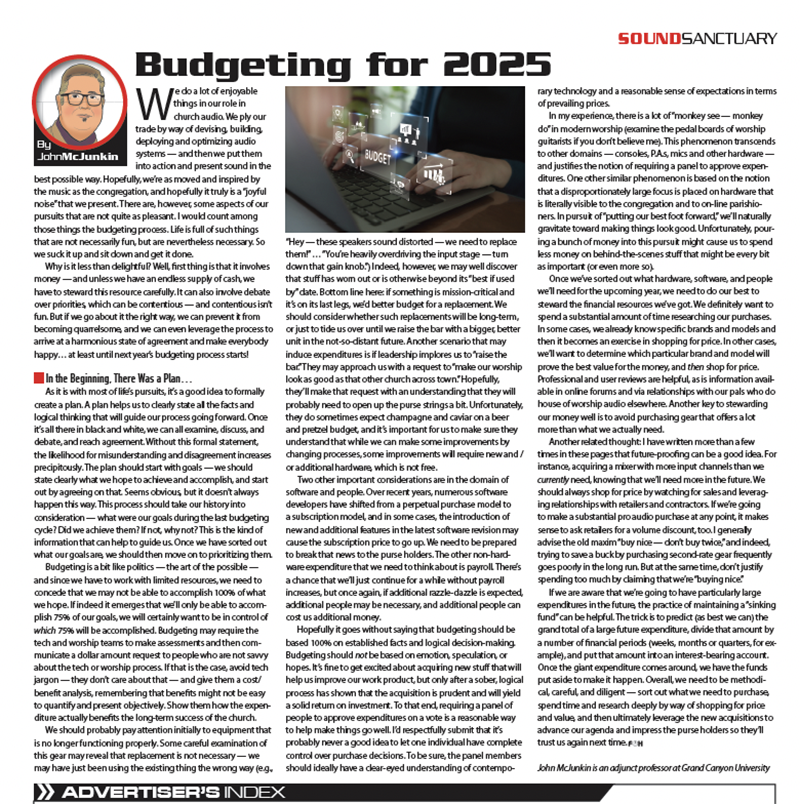Something I have said often is that many churches are willing to pay for a new sound and lighting system, but few are willing to actually own it. At the time, I was discussing the lack of willingness to train staff and really get involved in overall technical learning. But there may be different reasons why not owning is a good thing.
Depending on the financial organization of a church, especially if it's reasonably healthy, there are options available other than paying cash for technical systems. Using the credit card may lessen the burden on cash flow–and garner enough travel points to help a sponsor a long-desired mission trip or church retreat–or you may consider leasing (and making the payments with the credit card). If your church is in good financial standing, you can easily get lease financing for just about anything, including audio, video or lighting. The benefits to leasing include several things besides direct cash flow improvement. For some items, including intensively technical items where upgrades and advancements are ever-present, some leases provide for "trade-in" or "obsolescent" clauses that let you upgrade equipment before your lease is actually up. Wouldn't it be nice if you could take back that computer you bought 10 months ago and get the newest innovations at no extra charge?
For things like speakers, cabling, amplifiers and devices that are expected to outlive the typical two- or three-year lease, this type of clause may not be beneficial. In fact, you may want to lease these items for a longer term if possible, if it is beneficial to cash flow and tax positions.
Conventional lighting and dimming, for instance, is expected to last a decade or more, and might be a great candidate to be acquired on a shorter term lease to benefit cash flow and still have much practical value when the lease is over.
There are some things to know about end-of-lease buyouts.
There is fair market value, which lets you buy the equipment at the end of a lease at a reasonable price. Sometimes, there are great tax advantages to this because this becomes a direct operational cost rather than a prorated depreciation (though you should always consult with your CPA before any large investment).
There are also a variety of $1 and $101 buyouts at the end of the lease depending on which state you are in. These are usually straightforward, but always read the fine print to be sure.
I have seen many lease programs just for houses of worship that provide for "No Money Down" or "$99 Down" and deferred payments for six months. This type of program can really be great when you would like to install that new lighting system in September, but know that summers are toughest on weekly offerings. Planning ahead is always good stewardship.
In general, if you shop around, you will find flexibility, tax advantages and boggling amounts of fine print. Like any other credit situations, the better your credit, the better deal you can get. You should know that most local or regional leasing companies are just like mortgage brokers–they buy money wholesale, mark it up and pass the deal along to you.
The bigger and more reputable a leasing company is, the more likely it is that they get "cheaper" money from large sources like GE Capital, just to name one large source. A few larger banks have leasing departments and can get really good rates because it's their money to lend.
Good stewardship is creative, aggressive and faithful. Be all three. There's a lot to do, so get busy!



